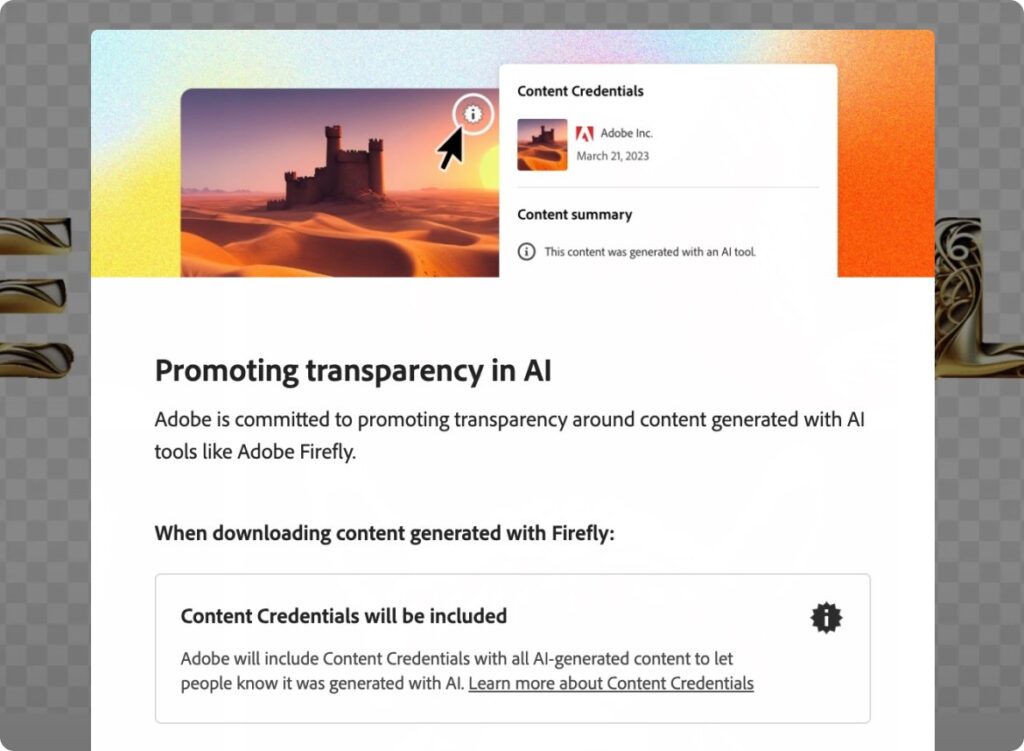If you’re sick of being fooled by AI-generated images and deepfakes on the web, you might be interested in what the Content Authenticity Initiative has been up to recently.
Stay on this page to learn all about the Content Authenticity Initiative, including who is involved and how the group is tackling fake news where image and video content is involved.
What is the Content Authenticity Initiative?
The Content Authenticity Initiative (CAI) is a community of tech companies, NGOs, academics, journalists and activists formed in 2019 to address misinformation and content authenticity at scale.
First announced by Adobe, the CAI has grown to include more than 300 members. As of 2023, that list includes The Associated Press, Arm, BBC, Canon, Getty Images, Leica, Microsoft, Nikon, The New York Times, Nvidia, Qualcomm, Reuters, Shutterstock, Universal Music Group, The Wall Street Journal and The Washington Post.
The CAI’s goal is to create a safeguard, open-source solution that adds a layer of verifiable trust to photos and videos, making it possible to ascertain whether they’re real or not simply by checking the Content Credentials metadata.
This solution requires cryptographic asset hashing to create signatures that demonstrate that the metadata of an image or video hasn’t been altered. Creators can also use Content Credentials metadata to conserve attribution for a piece of content or remain anonymous if they prefer.
The idea is that any edits, including alterations made in Adobe Photoshop, will be recorded in the metadata and preserved when the image is shared by news outlets and social networks across the web. Anyone can then upload the content onto the CAI’s Verify site to learn more about the image and how it has changed over time.
Adobe already uses Content Credentials to suggest that an image has been created using its Firefly generative AI models. Meanwhile, the Leica M11-P launched in October 2023 as the first camera with Content Credentials built-in.

“We are focused on cross-industry participation, with an open, extensible approach for providing media transparency that allows for better evaluation of content provenance”, explains the CAI on its website.
“This group collaborates with a wide set of representatives from software, publishing, and social media companies, human rights organizations, photojournalism, and academic researchers to progress content attribution standards and tools”.
The CAI is actually open for anyone to unite free of charge. By joining, you’ll be invited to build prototypes, unite quarterly events and access the CAI community forums.

